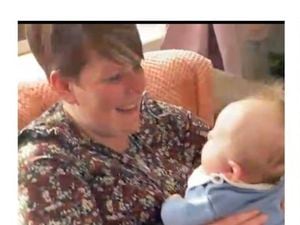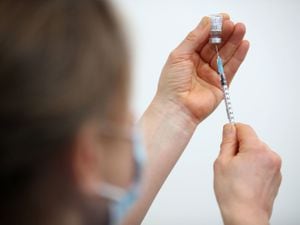Maternity services to improve following deaths of five mothers
Improvements will be made to maternity services for Sandwell patients following a review into the deaths of five mothers.

An investigation found not all recommended procedures were followed in the care of some of the women, who were all considered "high-risk" and died between August 2017 and January 2019, but that there was "no evidence of poor care or preventable death".
However, health bosses have admitted there may be some lessons to learn and several changes will be made on the back of the review.
They include new rapid blood clot testing machines and closer monitoring of high-risk pregnant women.
Babies are delivered at City Hospital in Birmingham as there is currently no maternity ward at Sandwell General, both of which are run by the Sandwell and West Birmingham NHS Trust.
Post-mortems on three of the women did not raise "elevated concern on poor practice to either the coroner or the trust", a report published following the review said.
Four of the women died while pregnant or during childbirth and one within a month after giving birth. Only two of the women died in hospital.
Two of the cases involved amniotic fluid embolism (AFE), a rare childbirth emergency which can result in heart and lung collapse and massive bleeding. One of these women was misdiagnosed and given alternative treatment, resulting in "subsequent worsening of haemorrhage", the report said.
A review was called in February following the two most recent deaths which occurred during the previous four months.
It found that in one case the care pathway was not "in accordance with local and national guidelines" and that in three cases the care pathway did not "meet best understood practice".
In two cases there were also "deviation" from the care pathway. One woman decided her pregnancy should "carry on under her terms" but this was said to have been a contributory factor in her death, and the trust said the "question remains whether we could have done anything differently".
"Areas for quality improvement" were identified in the case of another woman.
The report said women's journey through the maternity service was "complicated by multiple attendances on consecutive days" rather than a "one-stop shop approach".
New machines to test for blood clots will be brought in following criticism of a "lack of real-time coagulopathy results to support decision making within an emergency situation".
Despite concerns raised, staff were also praised for their response to the emergencies, for which they received support afterwards.
Trust chief nurse Paula Gardner said: “The review shows no evidence of poor care or preventable death. Each of these women had different care needs and complexities either related to their pregnancy or other medical conditions, with three of the deaths occurring outside the hospital setting.
"The cases of (AFE) are extremely rare - 1.7 in every 100,000 maternity cases. In four of the cases the reviewers found no practice that would have impacted on the outcome. In one case, the urgent actions of the team were commended as they fought to save the life of the woman and her unborn child, and it is not possible to determine whether earlier treatment of severe bleeding could have made a difference to the outcome.
“Nevertheless, we are a learning organisation, and, in order to provide the best care possible for all women and their families we are putting in place a number of measures to improve the maternity service further."





